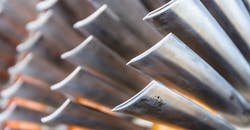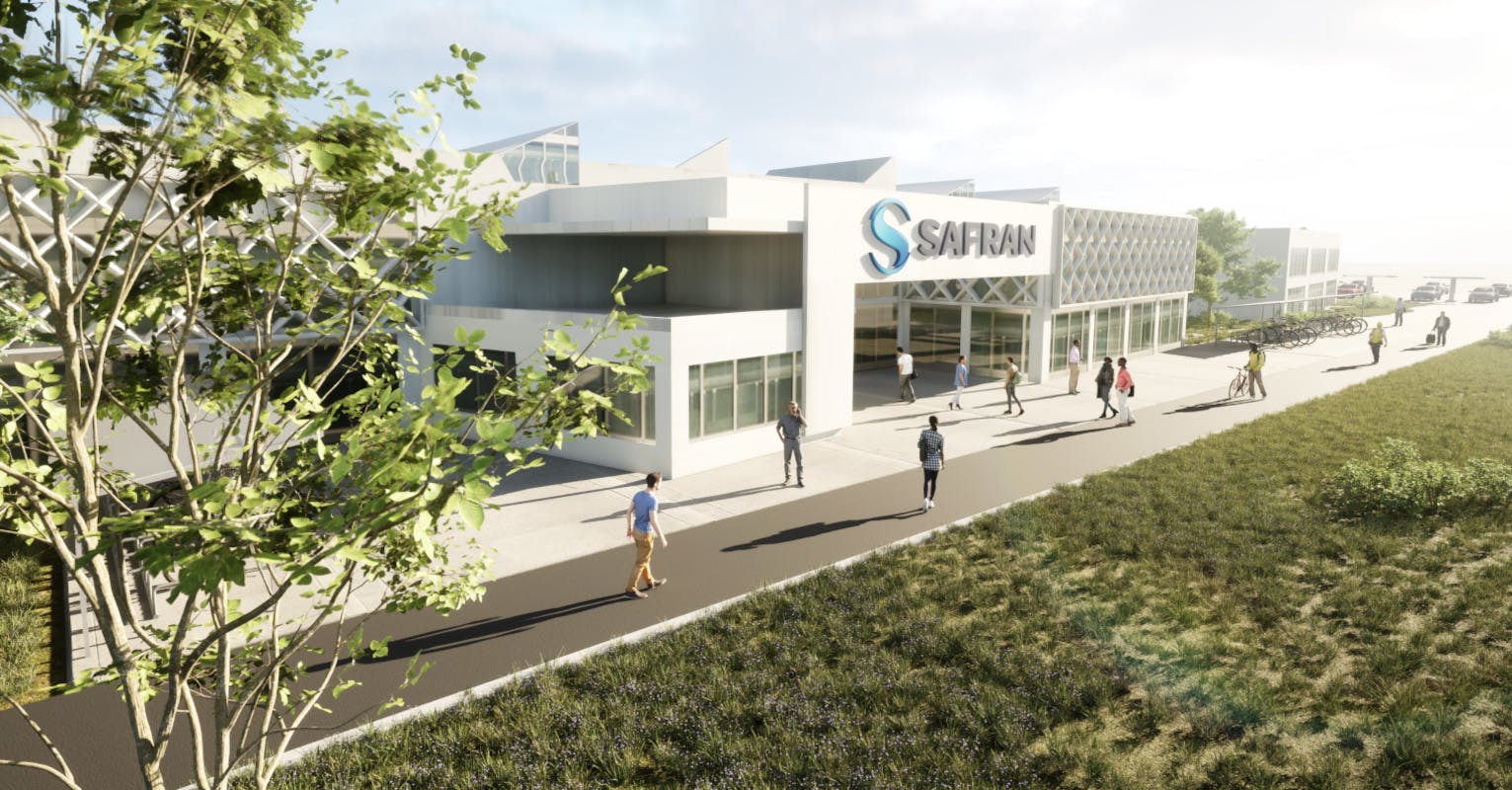Safran Plans Investment Casting Foundry
Safran Aircraft Engines plans to build a new foundry in Rennes, France, to manufacture turbine blades for its major engine programs. Safran produces the M88 installed in Dassault Rafale fighter jets, and through the CFM International joint venture it produces the LEAP engines installed in Airbus A320 and Boeing 737 commercial aircraft.
Turbine blades, or airfoils, are critical components for turbofan engine maintenance as well as production.
The French manufacturer did not reveal the budget for the new Safran Turbine Airfoils plant, which will open in 2027 and employ about 200 workers.
Turbine blades are typically produced by investment casting, which allows foundries to produce precision parts in highly specialized alloys and in high volumes. Working from a master pattern, a mold is made from which a series of wax or ceramic patterns are produced. These patterns are arranged as a single complex assemblage, and this cluster is coated with a ceramic refractory. Once the ceramic is hardened, the wax is burnt out of the shells, and those molds are preheated prior to filling with molten metal.
For turbine blades, the molds are filled under vacuum, which allows the manufacturer to control filling and solidification in line with the high-temperature, high-pressure performance that is required of them.
Safran noted the new plant “will work closely” with its current foundry operation in Gennevilliers, a complex about 240 miles east of the new site that has casting, forging, and machining capabilities for commercial and military aircraft engine parts.
According to Safran Aircraft Engines CEO Jean-Paul Alary: “Safran Turbine Airfoils will help us meet the challenges of ramping up production of the M88 combat aircraft engine — most parts for which are made in France — and strengthen the LEAP supply chain by making some of the more critical engine parts in France.”

